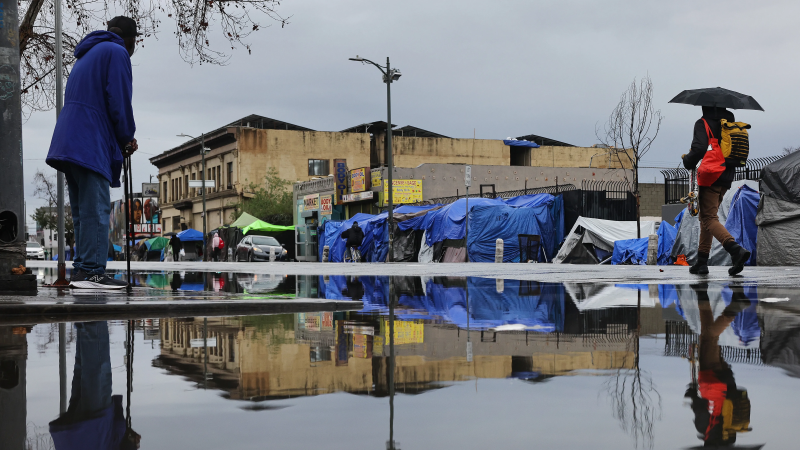Florida's new homeless law bans sleeping in public, mandates camps for unhoused people
Florida's homeless law is now in effect. On Tuesday, sleeping or camping on public property in the state was made illegal, and camping areas must be set up to accommodate the homeless community.
Statute 1365, formerly House Bill (HB) 1365, will make it illegal for people struggling with homelessness to sleep outside on public land.
"HB 1365 prohibits counties and municipalities from authorizing or allowing individuals to regularly sleep or camp on public property, at public buildings or their grounds, or on public rights-of-way within their jurisdictions," said the county's mayor, Daniella Levine Cava, in a memorandum sent to the Board of County Commissioners in September.
Starting January 1, 2025, cities or municipalities that fail to comply within five days of a written complaint could "face legal action from any resident or business owner within their jurisdictions or the Florida Attorney General," stated the memorandum.
The camping areas the municipalities are mandated to provide must be approved by the Florida Department of Children and Families and include security, behavioral health services, and bathrooms with running water.
Homeless crisis:I lived in a homeless encampment for a week. I saw how Housing First doesn't work.
Florida cities react to new homeless law
The mayor of Pensacola, D.C. Reeves, announced that he planned to use $1 million in unencumbered American Rescue Plan Act funds to purchase small, semi-permanent shelters, according to the Pensacola News Journal.
"Arresting our way out of homelessness is not going to solve our problem," Reeves said. "So, having that release valve of additional units coming online much faster than a long process, it's really why I pivoted from the low-barrier shelter that we were talking about."
Reeves was previously interested in using the funds to kick-start a low-barrier homeless shelter, but that idea was taken off the table earlier this year when a report from Jon DeCarmine, executive director of GRACE Marketplace in Gainesville, showed start-up cost would be between $2.19 million and $3.47 million.
Shelters will be placed throughout the community to increase the stock of housing available and get people off the street.
Meanwhile, one agency in Miami-Dade County doesn't think the new statute will help reduce homelessness.
“We reject sanctioned encampments and believe there is no evidence that they reduce homelessness,” said Ron Book, Chairman of the Miami-Dade County Homeless Trust, in a statement. “We are committed to investing in solutions that deliver long-term results and bringing new partners in, as we firmly believe we can end homelessness in Miami-Dade.”
In the last year, the City of Miami, City of Miami Beach, and Miami-Dade County have seen a a 2% increase in homelessness since 2023, according to an annual census conducted by the trust.
It will conduct the census again in January, as mandated by the United States Department of Housing and Urban Development.

USA TODAY has contacted Miami-Dade County and the City of Tampa about the new law, but has not yet heard back.
Julia is a trending reporter for USA TODAY. You can connect with her on LinkedIn, follow her on X, formerly Twitter, Instagram and TikTok: @juliamariegz, or email her at jgomez@gannett.com.
Disclaimer: The copyright of this article belongs to the original author. Reposting this article is solely for the purpose of information dissemination and does not constitute any investment advice. If there is any infringement, please contact us immediately. We will make corrections or deletions as necessary. Thank you.






